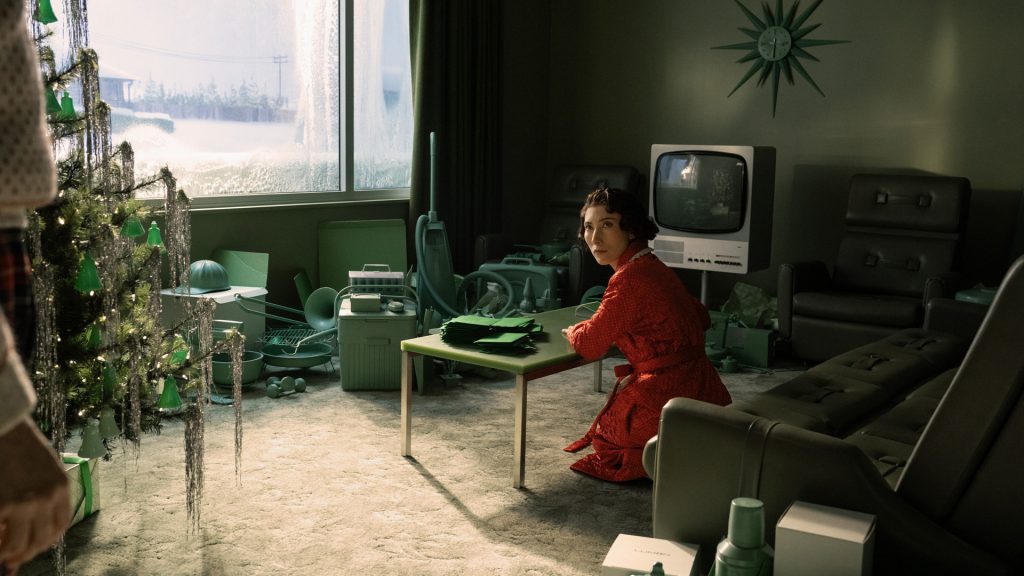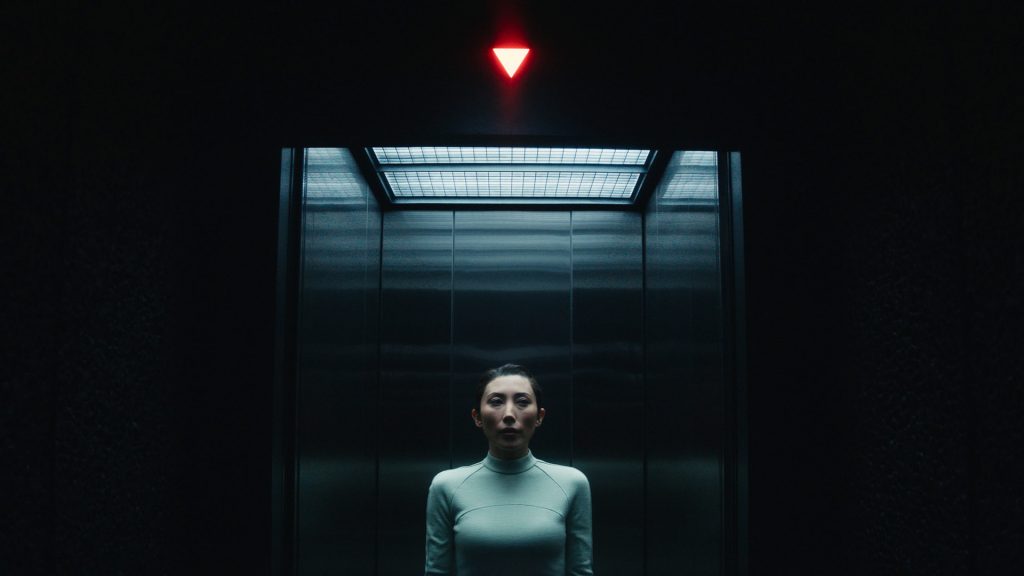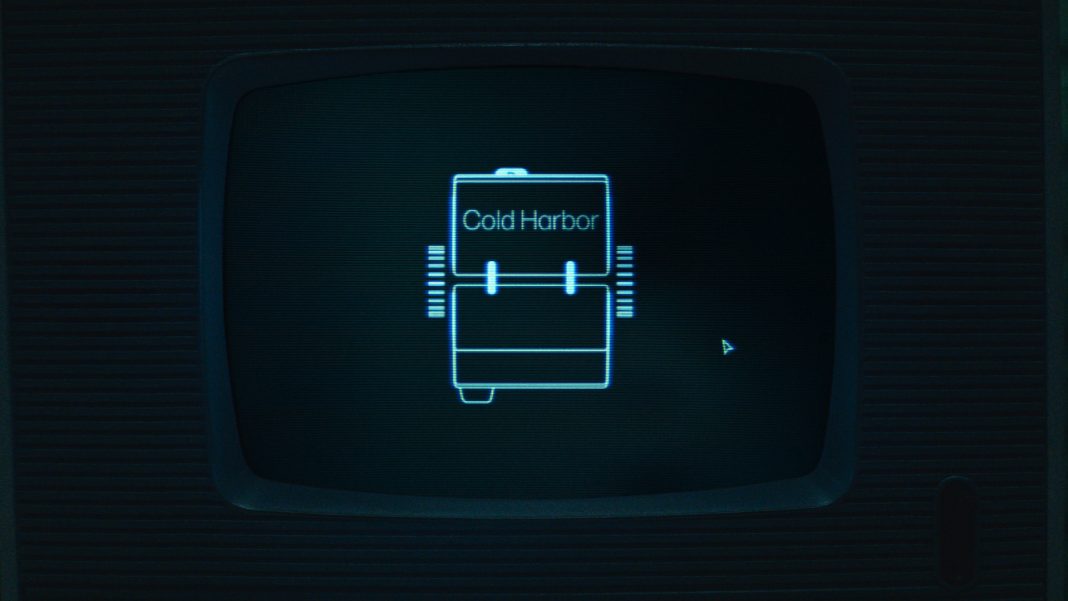Did Friday’s episode of Severance just reveal what Mark, Helly, Dylan, and Irving have been refining on the severed floor all this time?
Since episode one, we’ve known that the work of MDR (Marco Data Refinement) is both important and mysterious, but what are all those little numbers and why do they occasionally give our refiners a case of the heebie-jeebies?
“They were scary! The numbers were scary!” Helly remarks in a previous Season 1 episode.
Friday’s “Chikhai Bardo” may have just provided, if not the definitive answer, then a pretty big clue.
The episode unfolded across three interwoven timelines, deftly stitched together through director Jessica Lee Gagné’s evocative direction and seamless editing. (The episode was one of the most artistic hours of TV I’ve seen since the “Honeydew” episode of The Bear.)
And while Mark’s reintegration process was as painful to watch as the flashbacks tracing the origins (and unraveling) of his and Gemma’s relationship, it was the scenes revealing Gemma’s current predicament that provided the most clues as to what is actually happening — not just in MDR, but at Lumon too.

We discover that, now trapped as a guinea pig in the company’s severance experiments, Gemma must navigate a daily series of rooms which are all designed to elicit any number of unpleasant emotional reactions from their subject. Gemma undergoes a painful dentist’s exam in one room. In another she suffers extreme turbulence as a passenger in a plane. In another, she is forced to write hundreds of grim ‘thank you’ Christmas letters in a cruel echo of her past dislike for the task with Mark.
In each room, Gemma is met by the creepy Dr. Mauer (guest star Robby Benson), who we learn has an unprofessional interest in his subject. Between tests, Gemma is asked pointed questions: Which room was the most frightening? What does she remember of her time inside the testing room? What can she recall of her experiences once outside in the hallway again? The rooms have unusual names — Allentown, Dranesville, Siena, Lucknow, Loveland, Wellington, St. Pierre, Zurich, and tellingly, Cold Harbor.

We know that in MDR Mark is currently at 97% of his Cold Harbor target. We now also know that once he reaches 100% Lumon will have no further use for Gemma. She seems aware, even subconsciously, of this fact too, and makes a break for freedom towards the end of the episode, smashing the creepy Doctor Mauer over the head with a chair, and making it to the elevator, only to be caught by Mr Milchick and returned to her prison.
It seems obvious now that Mark and the others are refining Gemma’s experiences on the testing floor below. Mark, her husband — the person who knows her the best — is unwittingly leading the refinement process. He is the person who best understands those fears, and frustrations, and griefs and losses after all.
Could the Cold Harbor room provide Mark and the team at MDR with Gemma’s final fears regarding her own death?
Given that Lumon is a company that has successfully repressed memories in its employees, the next stage of development may involve selling the ability to remove negative memories, feelings and emotions, commercially. (We’ve already seen how one Lumon employee opted to have a “severed birth experience” in an earlier episode.)

If emotions represent our bodies’ reactions to events, and feelings are how we mentally interpret those reactions, then a new Lumon implant could grant the company incredible power over a gullible market willing to be severed from a myriad painful, irritating, uncomfortable, embarrassing, angry, jealous, fearful or even sad emotions.
In Michel Gondry and Charlie Kaufman’s 2004 movie, Eternal Sunshine of the Spotless Mind, two lovers undergo a procedure to erase all memory of each other, after their breakup elicits feelings of unbearable grief and loss.
In our review of FOX’s new medical drama Doc, a show about a doctor who suffers a catastrophic brain injury that erases the last 10 years of her memories, we asked: What if you had the chance to forget every bad thing that happened to you in the last decade? Would forgetting life’s cruelest and deepest cuts reset the button on your own rough exterior? Would you be happier? Softer? Better able to navigate your life and the people in it without the painful memories of betrayal, or disappointment, or grief preempting your reactions? Would it make you a better person?
If you think the answer might be yes, then Lumon has a brain implant to sell you. Pending further testing. But I hear things are advancing rapidly in that area.

If Lumon is indeed working towards an implant intended for mass market, then we can understand why Gemma, a woman grappling with the grief and loss of miscarriage, might see such a way of forgetting as a gift. Did she willingly sign up as a test subject? If so, we can begin to understand why.
One scene in Friday’s episode was a particular standout. Gemma, reeling from the pain of miscarriage, IVF, repeated disappointment, and Mark’s complaint that he has “No idea” how she is feeling, tells him she feels “beat to shit” by their predicament.
“Ok. Let’s stop,” he suggests simply. She turns her face away, clearly devastated by his casual suggestion. Until then, Gemma thought they were a team focused on the same goal, despite the enormous emotional and physical sacrifice that goal required. Now, at her lowest ebb, as she attempts to make her pain make sense, Mark suggests they simply surrender to it instead. But it’s not Mark’s physical pain. It’s not Mark’s physical loss. It’s hers, and in that moment she realizes it’s hers to bear alone.
Tensions continue to rise as Gemma grows distant, receiving mysterious cards from Lumon’s clinic mailing list. One card depicts “Chikhai Bardo”—a man fighting himself, symbolizing ego death—which Gemma explains to Mark as “defeating his own psyche.” The moment is a piece of excellent foreshadowing of their eventual severance from each other, both literal and emotional.
The tipping point comes the night of Gemma’s presumed death. After an argument about their stalled family plans, Mark distractedly ignores her “I love you” as she leaves. She drives off, and later, he’s told she died in a car crash — a fabrication we now know was orchestrated by Lumon.

However, no matter how we feel for Gemma’s predicament, there is no side-stepping Lumon’s quasi-religious and deeply disturbing underbelly. Remember Kier’s four tempers? In Lumon’s view of the world, Woe, Frolic, Dread, and Malice are all undesirable emotions to be tamed.
“In my life, I have identified four components, which I call tempers, from which are derived every human soul. Woe. Frolic. Dread. Malice. Each man’s character is defined by the precise ratio that resides in him. I walked into the cave of my own mind, and there I tamed them. Should you tame the tempers as I did mine, then the world shall become but your appendage. It is this great and consecrated power that I hope to pass on to all of you, my children.“
Not weird at all, Mr Eagan.
The tempers are all but explicitly stated to match the four categories of numbers in MDR files too. WO (green), FC (yellow), DR (red), and MA (blue).
WO elicits “melancholy or despair”, FC elicits “joy, gaiety, or ecstasy”, DR elicits “fear, anxiety, or apprehension”, and MA elicits “rage or a desire to do harm”. The philosophy of balancing the Four Tempers also matches the Lumon handbook’s to fill “each of five bins evenly with the four kinds of number clusters”.
They are also pretty accurate descriptions of Gemma’s current emotional rollercoaster, collected and curated by Mark and the gang at MDR.
The final room, Cold Harbor, now looms as Gemma’s endpoint. Mauer promises, “You’ll see the world, and the world will see you,” but his cold eyes deny her hope of reuniting with Mark.
Severance continues Fridays on Apple TV+.





